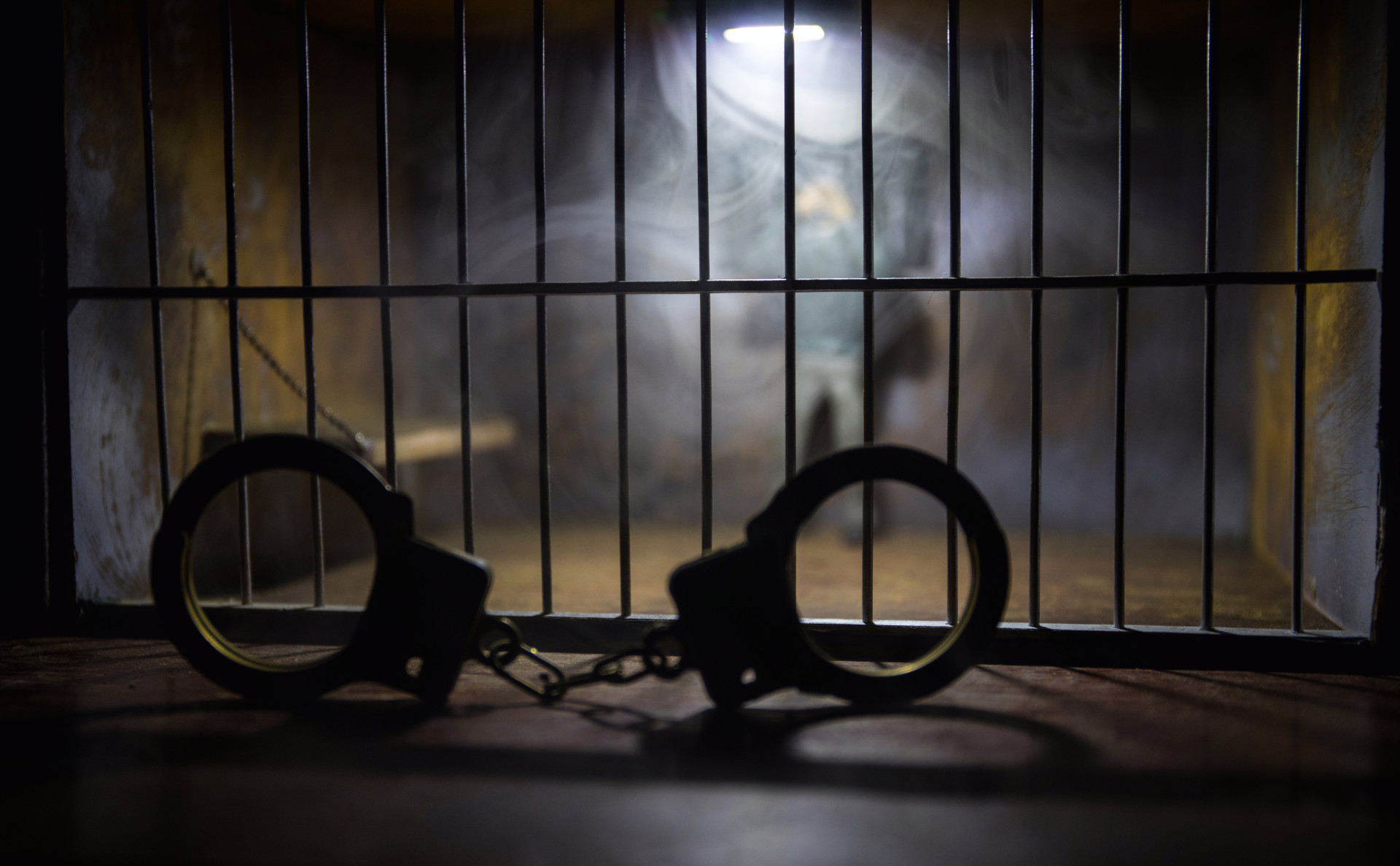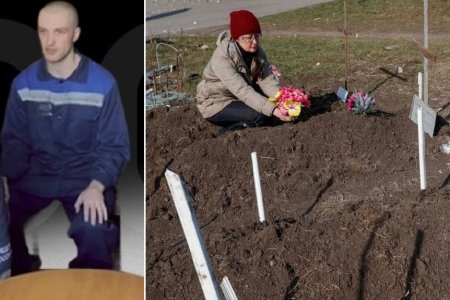
Our colleagues from the Memorial Human Rights Center analyzed this document. It contains a part devoted to our citizens: Prisoners of war and civilians abducted by Russia, forcibly displaced children, as well as human rights violations in the Ukrainian territories occupied by Russia.
Special rapporteurs belong to the so-called special procedures of the Human Rights Council. They are not UN employees and do not receive any payment for their work. They are independent of any government or organization and act in their personal capacity.
Detention of Ukrainians
“The ongoing war against Ukraine has led to a wide range of violations of international human rights and humanitarian law,” states Mariana Katzarova. “Ukrainian civilians held in arbitrary detention by the Russian Federation are of particular concern because the Russian authorities do not provide information about their number, fate or whereabouts and many are subjected to enforced disappearance. The majority are kept incommunicado and, according to the testimony of those released in prisoner swaps, many are subjected to widespread and systematic torture and ill-treatment, including rape and other sexual violence”.
The report cites the official number of Ukrainian service members held in Russian captivity, announced by Russian officials in the summer, as 6,465 as of June 2024. The Russian Federation has failed to accord them prisoner-of-war status, as required under the Geneva Convention relative to the Treatment of Prisoners of War. That failure deprives Ukrainian service members of the protections of the Geneva Convention and international humanitarian law, emphasizes Mariana Katzarova.
As of 2 August 2024, at least 1,672 Ukrainian civilians were known to have been arbitrarily detained by the Russian authorities, according to information received from families, civil society, lawyers, and people who have returned from captivity. The report says the International Committee of the Red Cross verified the whereabouts of 900 detainees. According to Katzarova, they are kept in at least 186 locations, including 89 in the Russian-occupied territories of Ukraine, 6 in Belarus, and 91 inside the Russian Federation, in penal colonies, pretrial detention centres, and temporary makeshift tent camps. In addition, 14,000 Ukrainian civilians are missing.
“Among those detained are opinion leaders, bloggers, journalists, activists, teachers, officials in local administrations, humanitarian aid volunteers, medical workers and pensioners,” states the report. “There is no established mechanism for the return of these civilians to Ukraine, although 157 have been returned through prisoner-of-war exchanges. The last known return of Ukrainian civilians was a prisoner-of-war transfer in June 2024, which included 10 civilians.” (Editor: On September 13, an exchange took place when 49 prisoners of the Russian Federation returned to Ukraine. Among them were both soldiers of the Ukrainian Armed Forces, the National Guard, the National Police, and the State Border Guard Service, as well as civilians illegally held captive by Russia, including Leniye Umerova).
The report emphasizes the terrible conditions in which Ukrainian civilians detained by the Russian military or special services are kept. They have been kept temporarily in harsh conditions in basements, school premises or army tents.
“Testimonies from survivors recount the systematic use of torture, including rape and other sexual violence, against both men and women, including elderly women as old as 82 and teenage girls. Torture has been used to extract testimonies about other civilians who opposed the Russian army or to obtain self-incriminating confessions as coercion to force cooperation or as punishment for being perceived as opposing the Russian army and supporting Ukraine or for having provided information to the Ukrainian armed forces”.
From the initial places of detention, the civilians were forcibly transferred elsewhere in the Russian-occupied territories or deported to the Russian Federation. The conditions of detention there are no better.
“According to the accounts of formerly detained Ukrainian civilians who have returned from detention inside the Russian penitentiary system, they were kept separately from Russians and without charges. They testified to the use of electric shocks, mock executions, waterboarding, the shooting of hands and legs, starvation, a lack of access to adequate drinking water, and other extreme torture resulting in deaths in custody”, emphasizes the special rapporteur.
“Both civilians and prisoners of war released from detention inside the Russian Federation also reported that they had experienced as well as witnessed sexual violence They also testified to the refusal of the Russian authorities to allow access to adequate and timely medical care while they were in detention, despite many of them having severe injuries as a result of torture and ill-treatment experienced while in detention”. Prisoners are living in overcrowded cells with poor hygiene and sanitation, and there are reports of suicide attempts among them.
Terrorism charges and “trials”
“The number of convictions on terrorism-related charges has increased 50-fold in the past decade, with no acquittals,” notes Ms. Katzarova. “The range of crimes considered to be terrorism has been expanded and penalties increased.”
Ukrainians, both prisoners of war and civilians, are also accused of “terrorism” or “espionage and terrorism.” They face 20 years to life imprisonment.
Their cases are tried in military courts, primarily the Southern Military District Court in Rostov-on-Don At the time of writing the report,14 Ukrainian civilians were being held there on “terrorism” charges. They have been tortured and ill-treated from the moment that they were detained, according to their defense lawyers, and denied access to adequate and timely medical care, putting their lives at risk.
The Russian authorities initiated at least 93 criminal proceedings against captured Ukrainians in 2024. In total, as of August 2, 2024, criminal cases had been opened against at least 655 Ukrainians, including 475 combatants and 180 civilians. These are 35 women and 620 men. Thirty-one of them were released through prisoner-of-war swaps.
In June 2024, 22 soldiers of the Ukrainian Azov battalion were put on trial, accused of terrorist activities against the Russian Federation and attempting to overthrow the constitutional order, recalled Mariana Katzarova. They are being tried as civilians because the Russian Federation does not recognize their prisoner-of-war status.
Also, Crimean Tatars continue to be accused of “terrorism” for belonging to the Islamic group Hizb ut-Tahrir (allowed in Ukraine).
“The mere discussion of certain issues relating to the war against Ukraine can lead to prosecution for “justification of terrorism”,” Ms. Katzarova notes. This cannot but affect the lives of Ukrainians in the occupied territories.
Ukrainian inmates deported to Russia from the occupied territories
Mariana Katsarova reported that over 2,000 Ukrainian civilian prison inmates from five penal colonies in the Russian occupied territories have been deported to prisons across the Russian Federation, where they are held incommunicado, separately from other inmates, and subjected to torture and ill-treatment.
“There is no mechanism for the return of these inmates upon the completion of their sentences,” the Special Rapporteur emphasized. “Some 250 cases have been documented of inmates released in the Russian Federation and then detained again, in immigration detention centres, for alleged violations of the migration law. Some were subsequently taken by Russian police to the border between Georgia and the Russian Federation and released. Civil society organizations have recorded 120 cases of former inmates who have returned to Ukraine.”
Ukrainian children
The Government of Ukraine has recorded the forcible transfer of 19,546 children to Russian-occupied Crimea or their deportation to the Russian Federation or Belarus as of the end of July 2024. Three hundred eighty-eight children were returned to Ukraine.
“The Russian authorities have failed to reveal the whereabouts, fate, and well-being of all the forcibly transferred or deported Ukrainian children,” states the report. “Some have been put through Russian adoption procedures. According to interviews with returned children, some were subjected to sexual violence during their time in Russian institutions and some experienced or witnessed physical violence and threats against children by the staff.’



